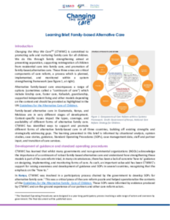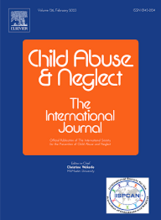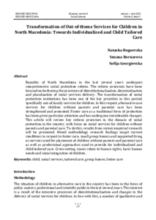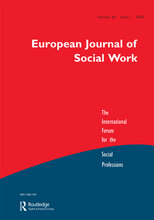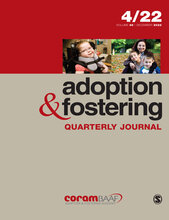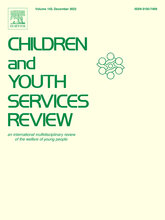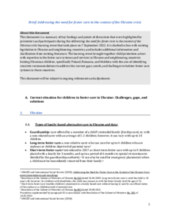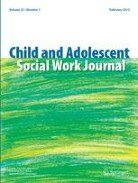Displaying 41 - 50 of 2163
Alexander is one of many Ukrainian teenagers who fled to Moldova unaccompanied. Thanks to the partnership between border police, child protection specialists working with UNICEF and local authorities, he was identified and integrated into a foster family from Causeni. Since the onset of the conflict, one of UNICEF's biggest priorities has been to protect children from abuse or trafficking.
This learning brief was developed as part of Changing the Way We Care's 2022 annual report and shares learning on family-based alternative care from Guatemala, Moldova, India and Kenya and links the reader to additional CTWWC resources on the topic.
The purpose of this study, based in France, is to explore the Emotion Regulation Strategies (ERS) of children in foster care and to highlight those most commonly employed in family or placement contexts.
This article reviews the key reform processes in the domain of social protection in the the Republic of North Macedonia, with a focus on social services for children without parents and parental care.
The aim of this article is to analyse the factors that intervene in decision-making by childcare professionals regarding non-kin foster care in the north-east of Spain.
This UK-based study aimed to develop an explanatory theory and model of the processes involved in fostering looked after children and the relationship between the roles of parent and professional.
In this U.S.-based study, the authors found that increasing the affordability of fostering a child could increase foster care capacity. They examine the impacts of changing economic conditions on the number of children in foster care.
This document is a summary of key findings and points of discussion that were highlighted by presenters and participants during the Addressing the need for foster care in the context of the Ukraine crisis learning event that took place on 7 September 2022.
The purpose of this qualitative study was to examine sibling relationships and sibling separation amongst adults with prior foster care experience in England.
In this cross-sectional comparative study, the authors assess the outcomes of emancipated youth in the U.S. after the initiation of an extended after care program and compare the results with the outcomes drawn from a prior study conducted twenty years earlier. Overall, young adults in the 2021 study fared significantly better than their 2001 counterparts.

